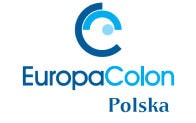Erythromycin Treatment for Readthrough of APC Gene Stop Codon Mutations in Familial Adenomatous Polyposis
NCT02175914
Interventional
Phase 4
Unknown status
Colorectal cancer (CRC) is a leading cause for cancer related mortality in the western world with a lifetime risk of 6%. Etiology is complex, while genetic background significantly affects the risk. Around one third of all genetic disorders as well as most cases of Familial Adenomatous Polyposis (FAP) and a large proportion of all sporadic CRC cases occur as a result of premature nonsense mutations (creating a stop codon) in an individual's adenomatous polyposis coli (APC) gene. Nonsense mutations are single-point alterations in the DNA that prematurely halt the protein translation process, producing a shortened, nonfunctional protein. In many of these cases, if the cell can be 'persuaded' to ignore the premature stop codon signal, the resulting protein may be able to ameliorate or stop the disease. Recently, members of the aminoglycoside family of antibiotics have been found to induce ribosomal read-through of nonsense mutations, leading to expression of a full length, functional protein. Investigators have recently shown that members of the aminoglycoside and macrolide antibiotic families can induce read-through of the nonsense mutations in the APC gene and lead to reduced oncogenic phenotypes in CRC cells and in different mice models. The aim of this project is to determine the ability of the macrolide antibiotic-erythromycin to induce read-through of the nonsense mutations in the APC gene and to induce expression of a full length, functional APC protein in patients suffering from FAP and to tests its effect on adenoma number and size and on desmoid tumors in these patients. The future goal is to maximize the effect of stop-codon suppressors on APC while minimizing side effects. In this study investigators will select FAP patients which carry APC nonsense mutations, treat them with erythromycin PO for 4-6 months and examine colonic and duodenal adenomas as well as abdominal desmoid tumors, that will be documented before during and after treatment. In parallel, investigators will test polyp, adenoma and desmoid tissue samples as well as blood samples from these patients for changes in expression levels of the APC protein and related oncogenic markers. Suppression of nonsense mutations within the APC gene should be of benefit for patients suffering from FAP, attenuated FAP or multiple adenomas and for patients with advanced or diffuse CRC. Furthermore, given the rapid progress being made in the identification of different nonsense mutations in human genes that lead to mostly un-curable disease, the identification of clinically approved compounds that suppress nonsense mutations and that can be administered long-term without significant side effects would open new venues in the treatment of genetic human diseases that arise from pre-mature stop codons in important coding sequences. Immediate goal: establish the ability of erythromycin to read-through APC nonsense mutation in FAP patients. The read-through effect of erythromycin will be clinically tested by counting and measuring the number and size of both colonic and duodenal adenomas before and over treatment and by measuring the size of known desmoid tumors. Samples of the adenomas and desmoid tumors will be tested by western blot, immunofluorescence and immunohistochemistry for restoration of APC expression and changes in oncogenic markers. These experiments should be conducted within 6 month. Long term objective: Determine the lowest dose of erythromycin that can inhibit growth of colonic neoplasia and CRC in patients expressing a truncated APC protein due to nonsense mutations.
Examine the ability of a panel of additional macrolide antibiotics to induce APC nonsense mutation suppression using in-vitro methods. Investigators will focus on macrolide antibiotics that are currently in clinical use and are administrated for long terms. These objectives should take around 6 month and will be conducted in parallel.
Jun 30,2014
All
18 Years
N/A
18 Years
N/A
20

